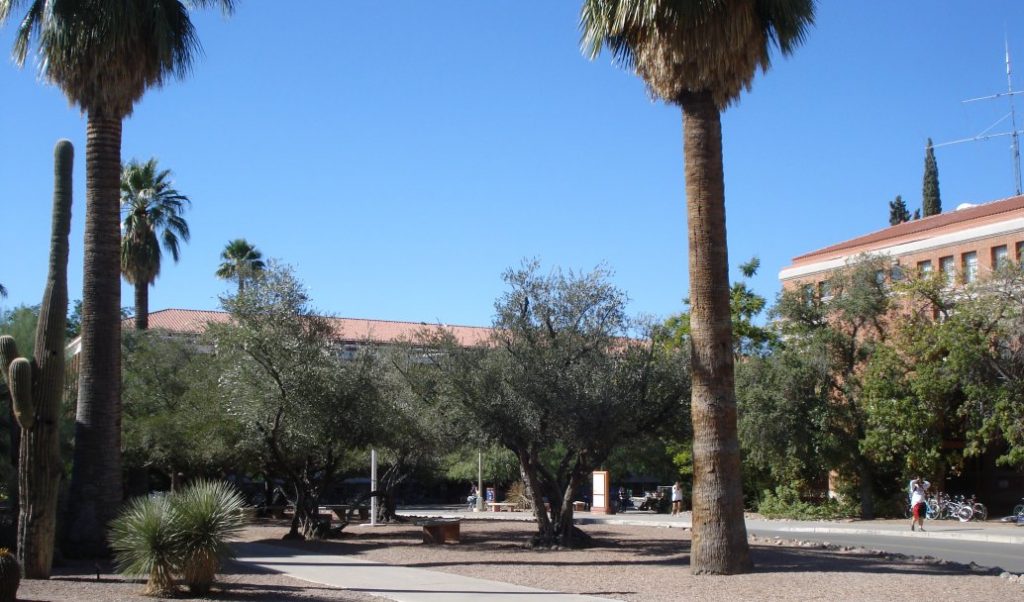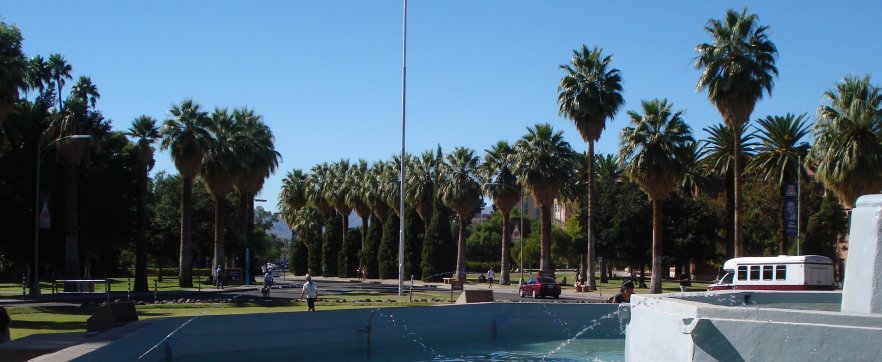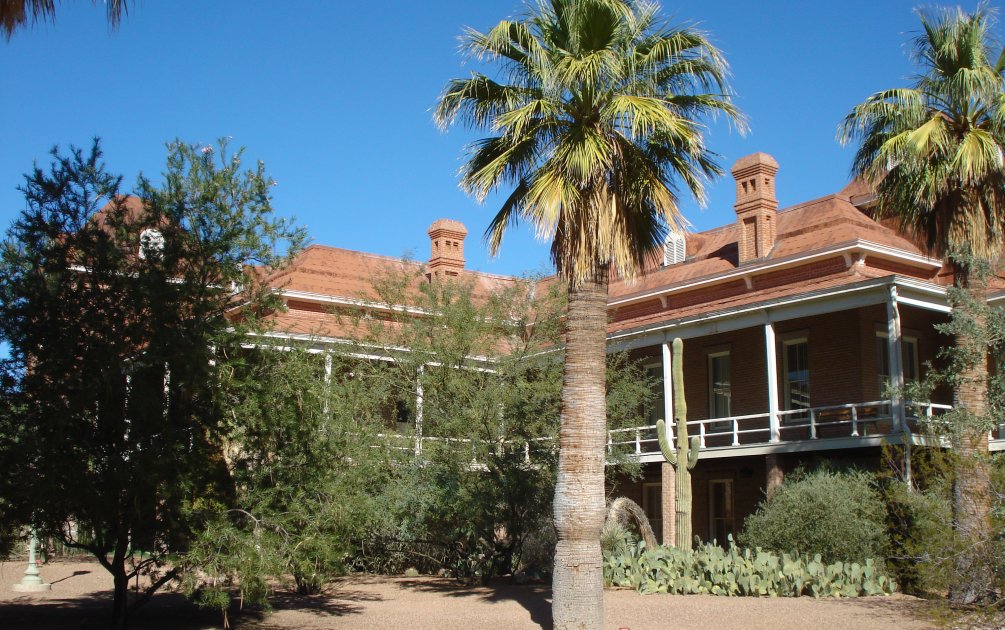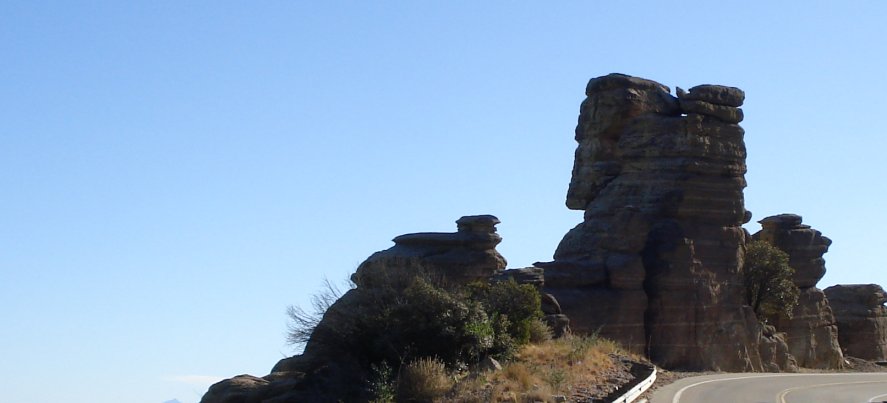
They have been planting trees at the University of Arizona for a long time, so it is not only a pleasant place but also a place where you can see a great variety of plants from around the world. The climate in Tucson is almost tropical, but the soils and moisture levels are very different, so it makes for some interesting combinations.
I came here to talk to some University of Arizona professors at the agriculture and soils department. They were courteous and hospitable. I can always find good people willing to tell me about the place they live and what they do and I enjoy getting the local angle wherever I go. Their ideas are reflected in the post on Mt Lemon. They told me about the environment there and suggested that I make the trip up the hill, so I thank them for that piece of local intelligence too.

My hosts were proud of their town and happy to live in Tucson. It is not hard to see why. Tucson has a lot to like. But the recent rapid growth has presented challenges to the local ecosystems. The extension services at the University of Arizona and the county extension are actively involved in their communities, helping local authorities, landowners and developers do the right thing to maintain a sustainable environment.
As with all cities in arid environments, water is a problem. Tucson depended on ground water and is one of the largest cities in the world to do that. The ground water renews itself (it is not like the Ogallala aquifer) but not at the rates now required. They now have a water plan that uses a water allotment from the Colorado River. Importing water creates its own challenges.
Minerals and salts can poison soils. This is what happened in large parts of Mesopotamia and it is an ancient lesson that we have to be careful when irrigating dry fields. The water itself brings with it minerals and salts and water sitting on irrigated fields can bring salts and minerals to the surface. In either case or in combination, the result is the same. The general idea is that you need enough fresh water dilution to wash out the salts and minerals. Rainwater is pure except for the small amount it might pick up from things like dust or smoke, but once on the ground it begins to pick up minerals and salts. When water evaporates, it leaves the minerals and salts it brought along. Most arid irrigated regions have a positive salt balance, i.e. more come in than goes out. Over time this buildup is a problem.

There is a lot you can do to conserve water, but conservation is not w/o its own problems. There really is no such thing as a decision w/o some negative consequences. All life involves trade-offs. Conservation means you use less, but using less concentrates the minerals and salts in smaller volumes of water, which may be worse for the soils. That is one reason there is a limit to the amount of gray water (semi-treated) that you can apply to irrigation. The water is reused and recycled … and the salts and minerals are concentrated. If you live in a place where it rains a lot, you don’t think about these problems very much, but you have to if you live in a arid place like Arizona, with rapidly expanding populations.
On the plus side, the growth of urban populations might REDUCE water demand. That is because no matter how much water an urban population reasonably uses, it is often less than irrigated agriculture had used with the methods employed in the past. Ranchers can convert their irrigated agriculture to dry land production and sell the water saved to the growing urban regions. Production declines, but it might be more profitable. Municipalities also buy up land, along with the water rights. This has the double benefit of providing water and open lands for parks and nature reserves.

We learn from experience how to maintain a sustainable environment. As I often say, yesterday’s solutions are today’s problems, but that does not mean we made stupid mistakes in those solutions of the past. As conditions change, often BECAUSE of our solutions, our responses must also change. That simple knowledge should make us less critical of the “mistakes” of our ancestors and less arrogant in our out decision. There is no end to this game, just one move after another. The good player just get to keep playing. Some people think this is depressing (These are often the same ones who were upset when they discovered the principle of entropy.) I find this exhilarating. It is almost the very definition of being alive.
Tucson is a pleasant place and a lot of people want to live here. With good management and some foresight, they can accommodate more while keeping it a place people want to come.
